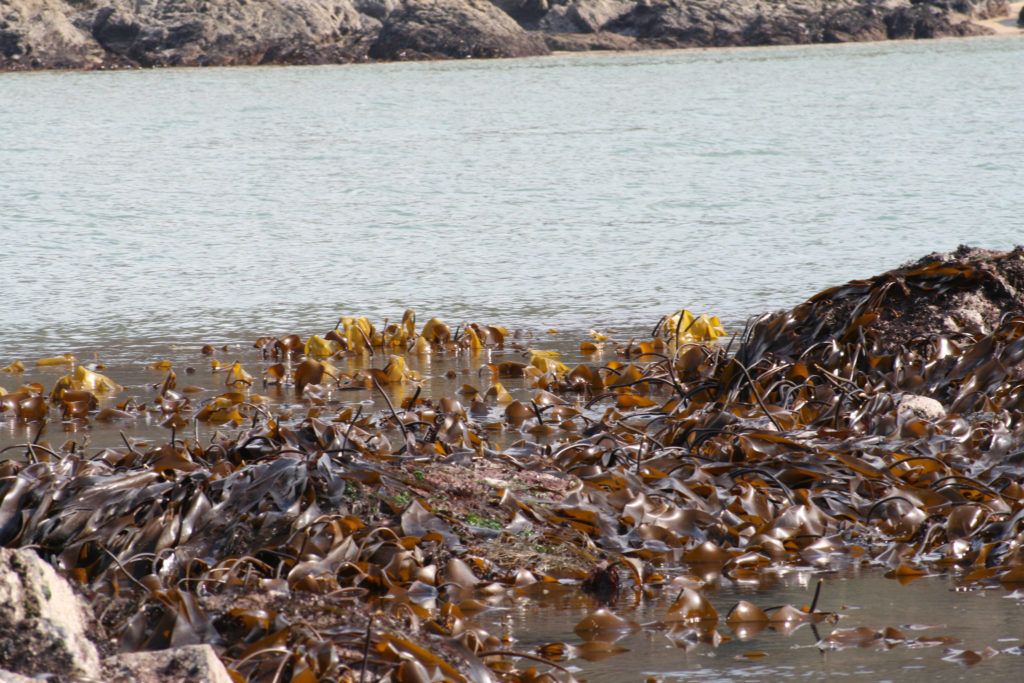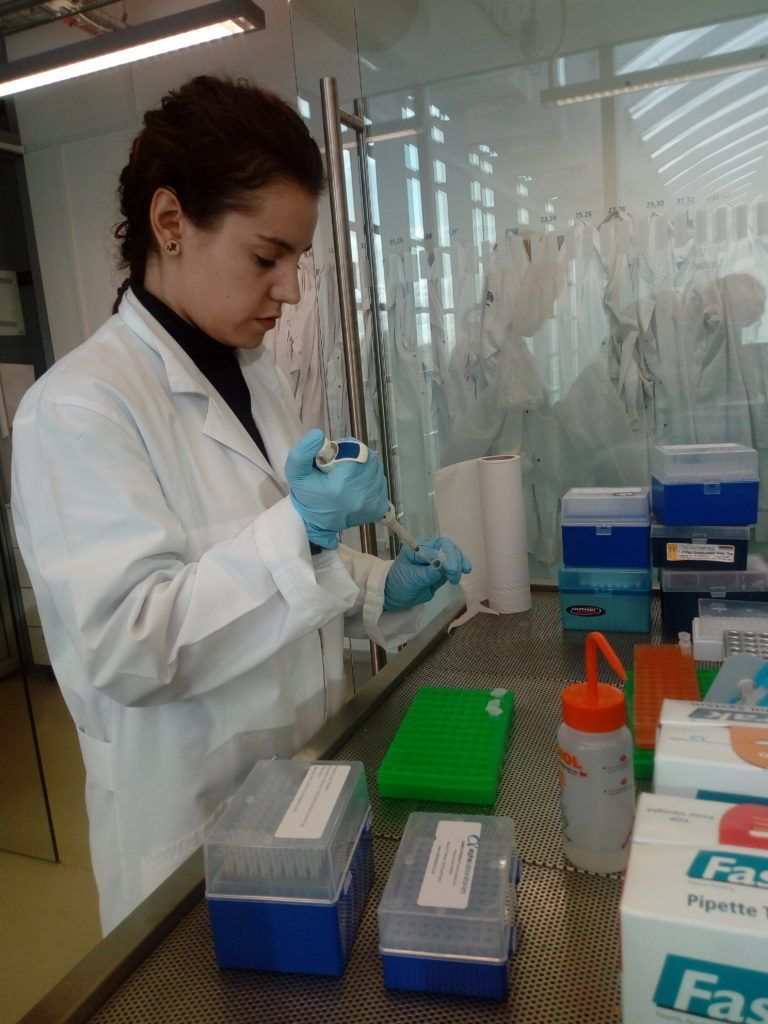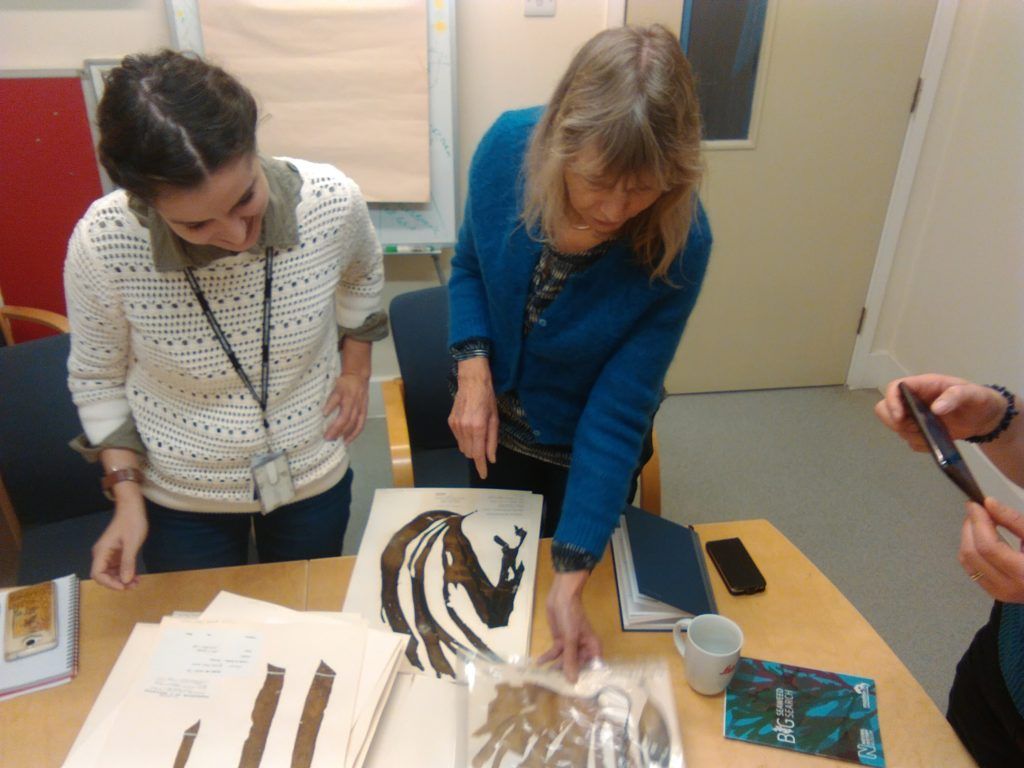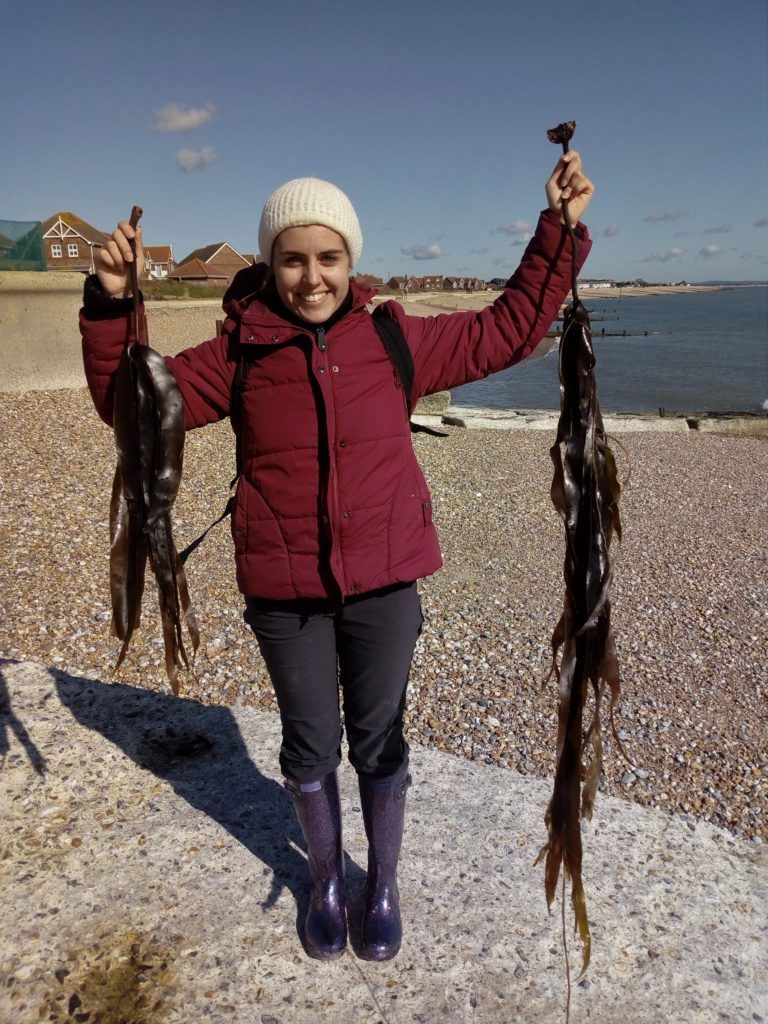PTES intern, Danai Kontou, has been busy this year, investigating a critical but little-known species that once dominated our coastal waters. With PTES funding, and under the supervision of Chris Yesson at the Institute of Zoology, Zoological Society of London (ZSL), Danai has spent the better part of a year wading through chilly British coastal waters to collect specimens and immersed in a laboratory extracting DNA.
Kelp forests are under threat by a changing planet
Our planet is changing faster than ever due to overexploitation of resources and climate change. It is therefore imperative to investigate how species and populations of all our fauna and flora may respond to disturbances and stress by understanding their potential for physiological acclimation and evolutionary adaptation. Studying the genetic structure of wild populations and the evolution of their traits through time and under varying conditions, could offer a better insight into how they function, which in turn will help us make sound future predictions to inform our conservation efforts.
2020 has undoubtedly been a challenging year. We have suffered catastrophic wildfires, extreme weather and a global pandemic. These events are a warning of the rapid changes in our Earth’s climate and the threats facing wildlife and humanity as our activities are driving ecosystems to the edge of collapse.

Kelp forests along the UK coasts are not exempt. Kelp are habitat-forming macroalgae that dominate coastal ecosystems from temperate to Arctic seas. Their vast forests are highly productive, harbour a rich variety of organisms, serve as fish nurseries and project coastlines. They appear vulnerable to climate change, ocean warming and acidification and are threatened by commercial exploitation, habitat loss and degradation due to coastline urbanization. Extensive loss of kelp forests has been reported from around the world and there is evidence of worldwide declines and distribution shifts.
Danai has been studying the critical yet little understood kelp species, oarweed
Motivated by reports of a dramatic loss of kelp beds over the last 40 years, Danai decided to investigate the genetic composition of England’s common kelp species, the oarweed, in order to help put plans in place to protect it. Oarweed has been largely understudied, despite being a valuable ‘ecosystem engineer’ and ‘model organism’. An ecosystem engineer is a species that creates or modifies a habitat that others species rely on. Kelp forests create safe refuges and foraging ground for numerous fish species, and are recognised as one of the most productive and dynamic ecosystems on earth. Kelp are also ‘model organisms’ which mean that by studying them – and how they are able to tolerate and adapt to changes such as temperature – we can better understand how other species will respond too. Their vast forests also act as carbon stores and they provide protection for coastlines and the differing habitats and ecosystems on shore. In short, they’re critical and yet we know very little about them, and are losing them at an alarming rate. Kelp are particularly sensitive to changes in water temperature, currents and have been heavily impacted by trawling on the southern coast in West Sussex.
By studying the genetics of oarweed, Danai can see how it adapts to stress

With PTES’ support and in collaboration with ZSL and the Natural History Museum, Danai collected specimens from Sussex, Kent, Scarborough and Cornwall. Her aim was to genetically sequence the different populations of oarweed around the UK coast. By looking at their genetic diversity, Danai can assess how fit and resilient the populations are. Isolated populations are likely to be facing invisible threats such as physiological stress, isolation, inbreeding, reduced fitness and low genetic diversity. Danai wanted to know how many genetically distinct populations there are in our waters, how diversity differs within and between populations, and if any of those genetic difference relates to ecological adaptations either in response to local conditions or as responses to more recent global phenomena such as increasing sea temperatures.
Generating adequate data for large-scale genetic surveys can be challenging and expensive. After many months in the laboratory, and much experimentation, Danai established an inexpensive protocol for kelp tissue processing, DNA extraction, purification and amplification. No mean feat, which required a lot of patience. Eventually Danai was able to process about 200 kelp samples and sequence a small part of the plastome to identify her specimens on a genetic level. To see how alike or diverse the populations of kelp are, Danai needs to look for molecular markers – parts or strands of DNA which can be compared between samples to look for similarities or differences. She’s chosen to use microsatellites and has identified 12 markers to compare the samples.

When lockdown was imposed, her project had to be put (quite literally) on ice. But once the labs are open again, Danai can get the kelp samples genotyped and start to look at the population structure and connectivity between the different sites. Her findings will help inform the re-establishment of kelp forests along the Sussex coast, hopefully restoring this critical habitat to our southern coastal waters.


